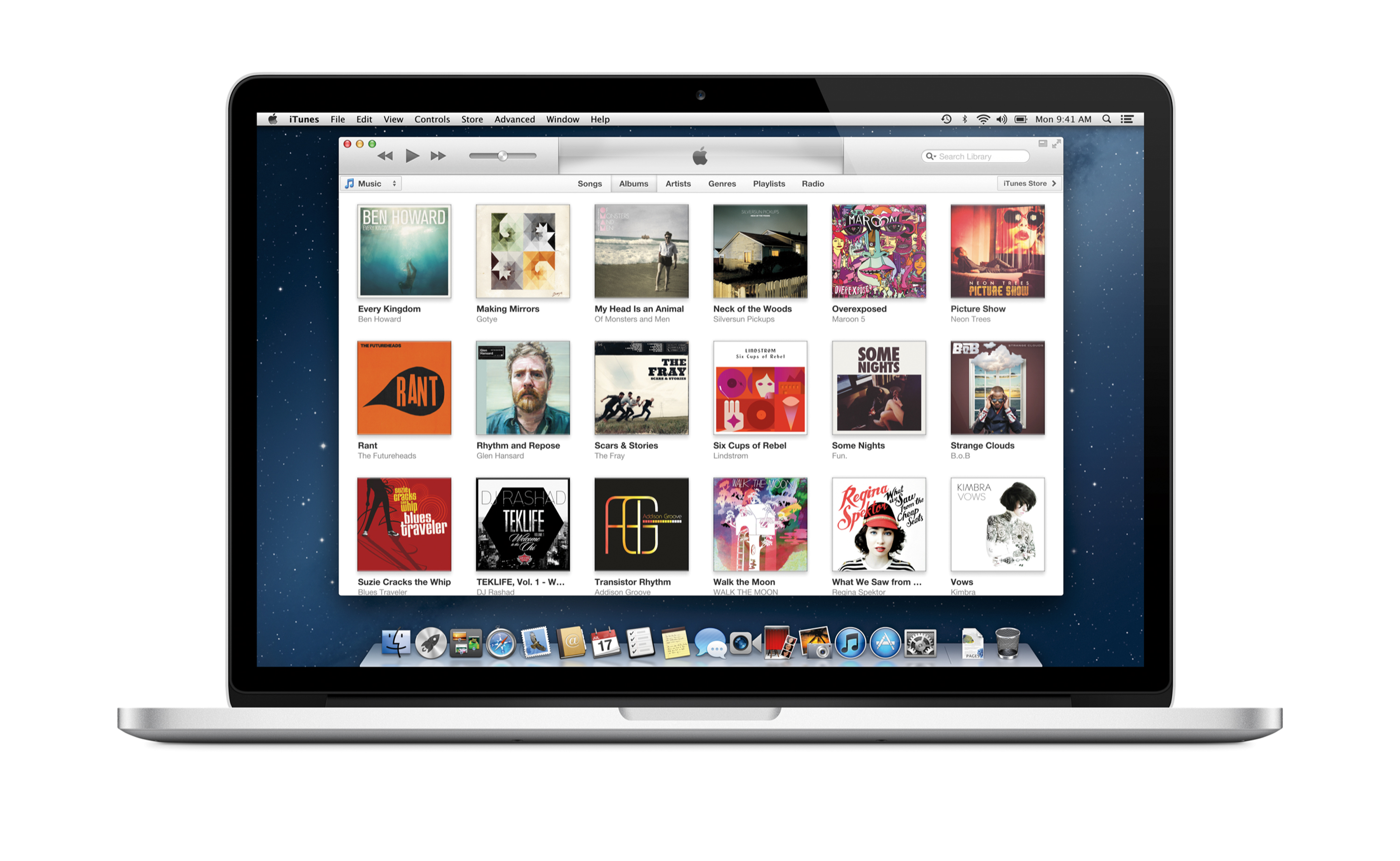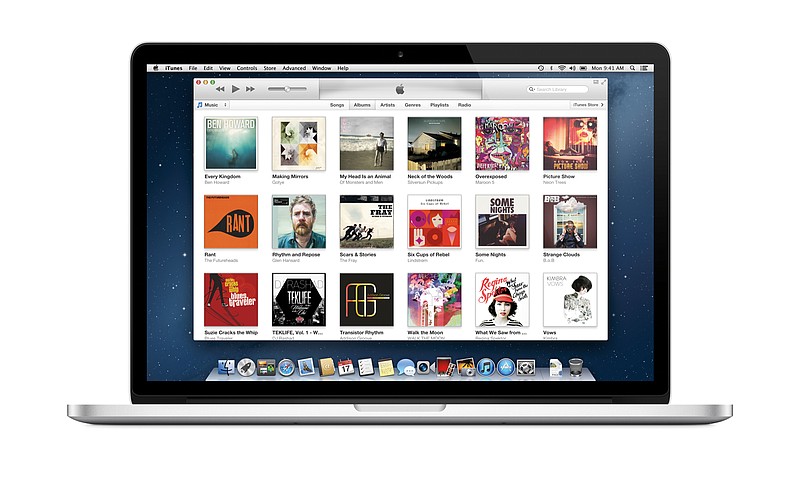 The iTunes music page appears on a computer screen. The iTunes music store changed how we consume music and access entertainment. It's not only music's biggest retailer, it also dominates the digital video market, capturing 67 percent of the TV show sale market and 65 percent of the movie sale market, according to information company NPD group. Its apps are the most profitable, it has expanded to books and magazines, and it is now available in 119 countries.
The iTunes music page appears on a computer screen. The iTunes music store changed how we consume music and access entertainment. It's not only music's biggest retailer, it also dominates the digital video market, capturing 67 percent of the TV show sale market and 65 percent of the movie sale market, according to information company NPD group. Its apps are the most profitable, it has expanded to books and magazines, and it is now available in 119 countries.Revenue from digital music matched that from physical albums and discs for the first time in 2014, a global industry body said Tuesday.
The International Federation of the Phonographic Industry's annual report said digital and physical sales each accounted for 46 percent of the $14.97 billion in global music revenues. Income from performance rights and synchronization revenue made up the rest.
The old-fashioned vinyl format has had a renaissance and now accounts for 2 percent of revenues.
Total revenue was down 0.4 percent from 2013, but the group said the overall picture for the industry was positive.
The federation said the rise of subscription music services was driving digital growth, and there was "substantial untapped potential for growth" in the paid-for streaming sector.
"Music companies are charting a path to sustainable year-on-year growth," said IFPI chief executive Frances Moore.
But she said that the industry was missing out on revenue because some platforms including YouTube are exempt from copyright laws applied to music-streaming services like Spotify -- despite having many more users.
Moore said laws should be changed to fix this "value gap."
"It's not something the industry can fix, it's something that government can fix," she said.
YouTube said "we pay hundreds of millions of dollars to the music industry every year, have deals in place with hundreds of independent and major labels around the world, and provide rights-holders with tools to control their copyrighted work."
The report also named the year's top-selling album -- the "Frozen" soundtrack, which sold 10 million copies. Pharrell Williams' "Happy" was the top single, selling 13.9 million copies.
